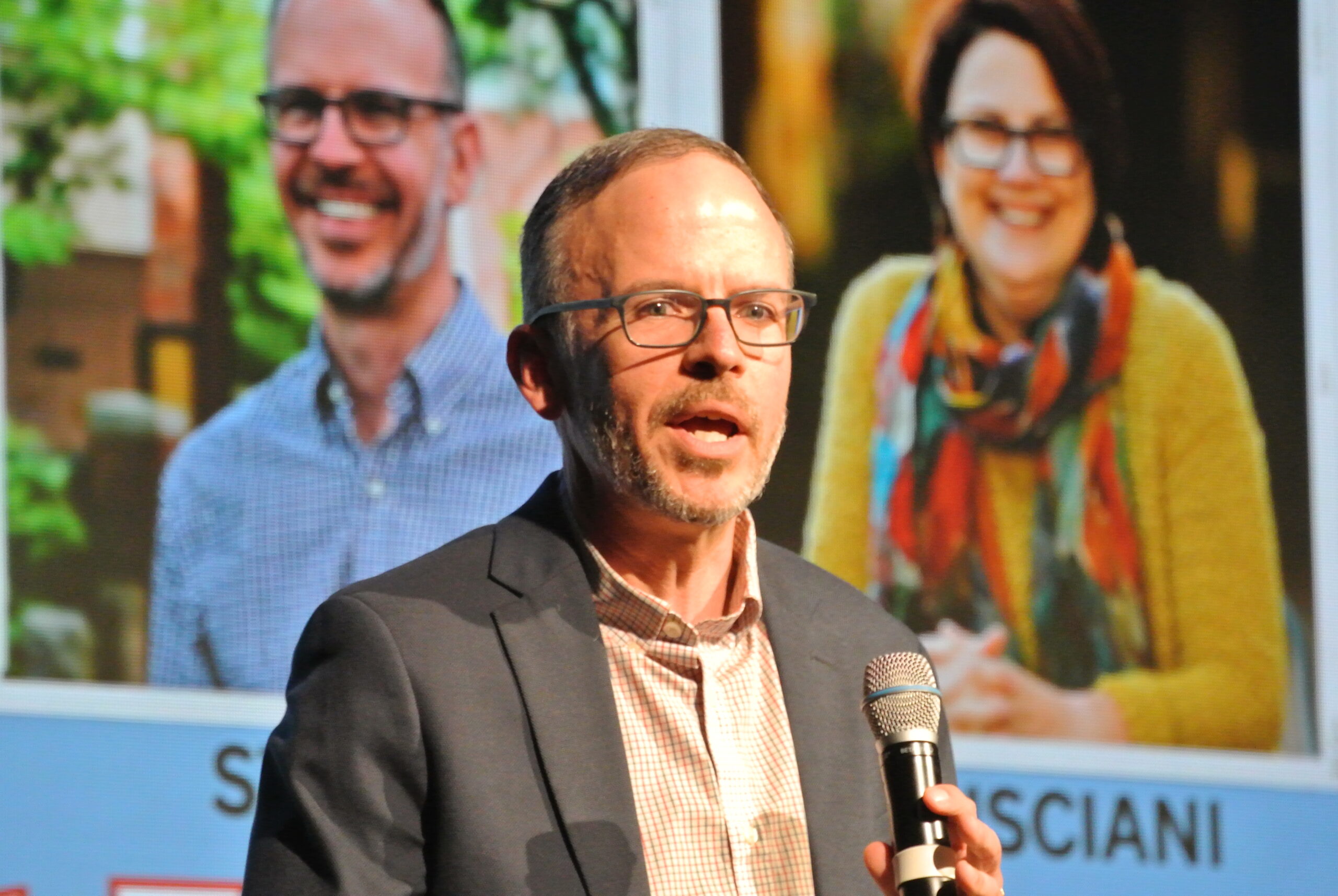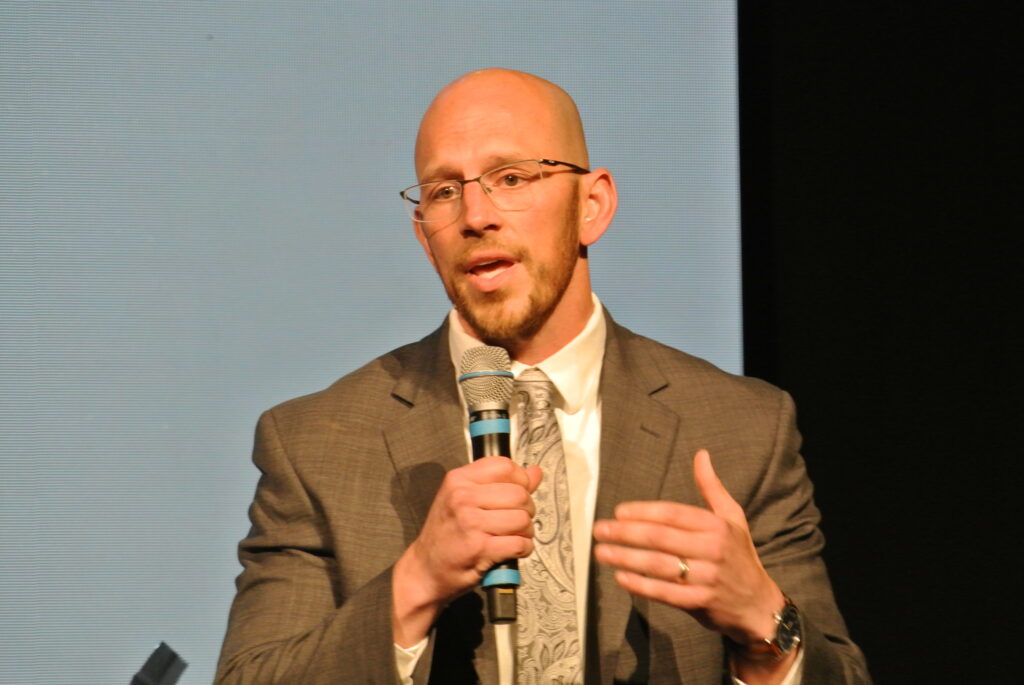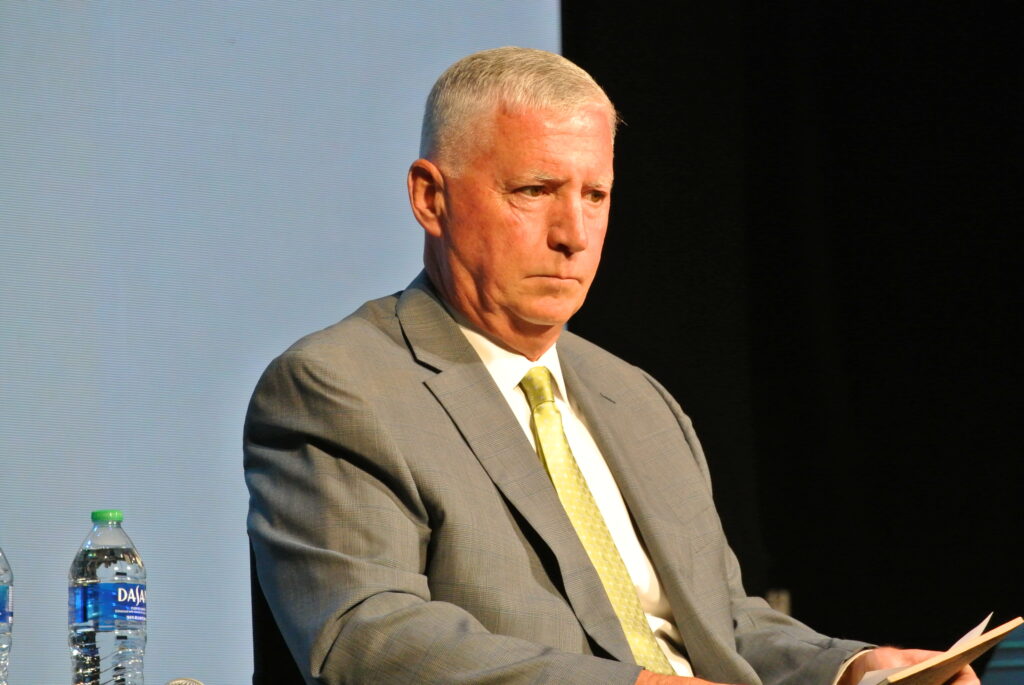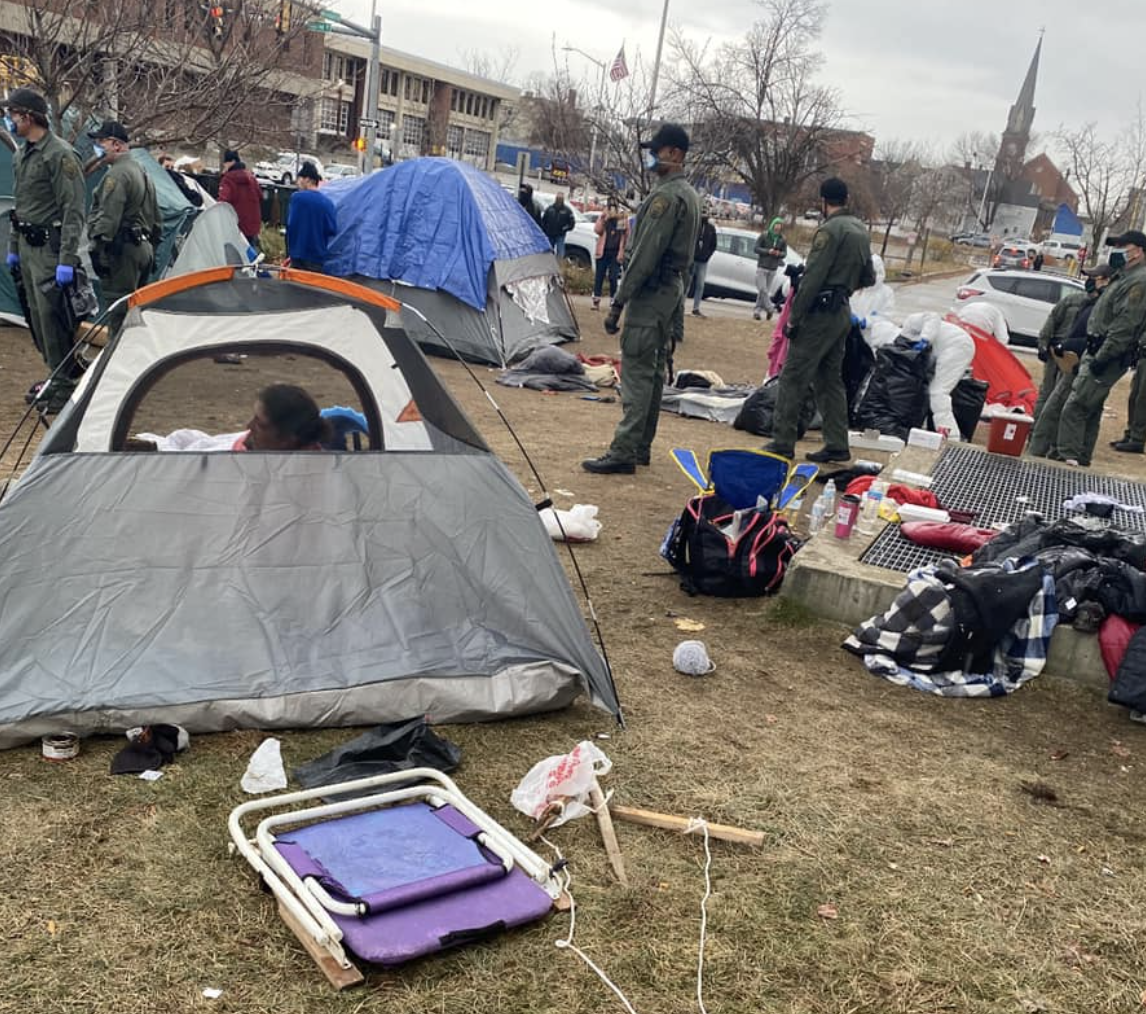Levasseur Says Beloin Drama Is About Housing Director’s Lack of Transparency

The turmoil over Manchester’s Director of Housing Stability Adrienne Beloin’s firing boils down to a department head who refuses to be accountable to elected officials, said Aldermanic Board Chair Joseph Kelly Levasseur.
“We’ve been blindsided by the lack of information, and when we ask questions, she treats us like we are not experienced enough to even ask,” Levasseur told NHJournal.
Beloin faces a termination hearing on Thursday after she started throwing rhetorical bombs at the board on Drew Cline’s WFEA radio show. On Tuesday, Beloin again took to the airwaves to paint herself as the victim of a heartless board that wants to punish the homeless. When asked by Cline if she would simply apologize for her remarks and keep her job, Beloin said there’s no point.
“There’s nothing to apologize for,” Beloin said. “It’s very clear to me it doesn’t matter how polite I am. Even if I were not to say these things, it wouldn’t matter … They have to have something to defend themselves and their actions.”
Beloin describes herself as a “Social Change Agent” on her LinkedIn page. Trouble started last week when, during a Board of Mayor and Aldermen meeting, she pushed back against questions about policies at the Beech Street shelter.
“We’ve made an enormous amount of progress in this past year that we should be really proud of, and we shouldn’t lose any momentum of where we’re going,” Beloin said at the meeting. “I know it’s very hard for you to understand what the work is that we’re doing, because this is not your field of work.”
Beloin was soon claiming the board retaliated against her remarks by moving her office to the Beech Street shelter. But Levasseur told NHJournal that’s not true. Beloin previously did not have a set workspace, using a table in the city Welfare Department.
“We just wanted her to have her desk in the same building as the people she has oversight for,” Levasseur said.
Levasseur said the problem is Beloin’s refusal to provide basic information to a bipartisan group of aldermen about how the shelters operate, creating a lack of transparency for the board and the public. No other department head in the city would be able to refuse to answer questions, he said.
“I’ve been on the board for 15 years, maybe more. When we ask questions of department heads, they get us the answers,” Levasseur said. “I’ve never seen people fight about being put into a building.”
Beloin says new board members and new Mayor Jay Ruias are pursuing an agenda to get rid of her after she was protected from the board by Mayor Joyce Craig. Since the November election, Beloin said she’s been marginalized and kept out of the policy discussion.
Ruais’s office declined to comment. Levasseur said that under Craig’s protection, Beloin operated with little oversight and was able to get more money in the city budget without providing information to the board, he said.
“We couldn’t get answers,” he said.
Beloin won’t appear at committee meetings to answer questions, the exact type of forum where other department heads help craft policy, Levasseur said.
“She refused to come in front of the committee,” Levasseur said.
He said the board is now trying to see how well Beech Street operates and whether it is really helping people after years of Craig’s mismanagement.
“Ruais won the election, in part, because Craig was awful at handling the homeless issue,” Levasseur said.
Jake King, the shelter manager at Beech Street, joined Beloin on WFEA and blamed Levasseur for the conflict.
“Joseph Kelly Levasseur does not want people who are not him getting things. That makes him mad and angry,” King said.
Levasseur told NHJournal Beloin’s upcoming hearing is likely going to be “her bashing people as she walks out the door.” Beloin is currently on administrative leave. She told Cline she’s considering a negotiated severance package.
“I’m considering what’s best for myself and my family right now,” she told Cline Tuesday morning.









